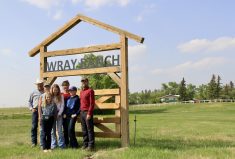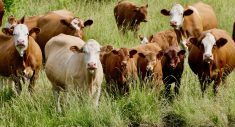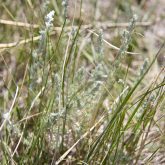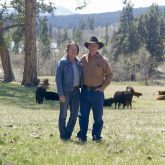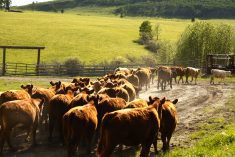In agriculture, we pride ourselves on our lifestyle. We are ranchers or farmers and we view ourselves differently than our urban cousins. We take credit for being “Stewards of the Land.” We harvest what we sow and work with nature to feed the world. This all sounds warm and fuzzy, but I think that this ideal has been forgotten by many producers. If we truly are stewards of the land, we should be valuing our production practices by more than just cash flow. I know money is not the only value that I weigh when I make decisions on my operation.
Read Also

A strategic approach to risk on the ranch
Given the increase in the value of livestock and the market volatility, we need to cover our risks. First,…
Just in my local area alone I can count over a dozen stewards of the land bulldozing down trees and burning them. I always find myself wondering whether it is fog up ahead or smoke? It pains me to see this loss of biodiversity. We criticize other countries for knocking down their rainforests in the name of agriculture, yet we don’t hesitate to do it here if it helps us get our equipment around easier, or gets us a few more acres.
That treed area is home to many animals and insects that are beneficial to our operations. Many of these critters might very well be helping to control pests in our fields without our knowledge. Trees also help slow the wind to reduce erosion and evaporation losses. They work as a snow catch which means more soil moisture in the spring. The leaves that fall each year also provide fertility that was not previously found on the soil surface. They also supply shelter and feed during the winter for many different species.
Our trees are important and need to be protected. I like to see trees on 30 to 40 per cent of the land I rent. Shelterbelts are a great way to improve biodiversity on the land while still allowing plenty of room for production. I have planted thousands of trees over the years in an attempt to increase biodiversity.

I also see many stewards of the land draining lowlands and filling in water sources. This is another attempt to gain a few more acres for harvest at the cost of these fragile ecosystems.
A few months ago I wrote about our friendly neighbourhood beaver and how they should be allowed to do what they do best. Life begins with water and our biodiversity is dependent on riparian areas.
Again, many species beneficial to us are dependent on these riparian areas. They work for us, and the best part is that they only ask for room and board as payment. We need to make sure that we provide what they require to thrive, in whatever form that might be. Water is, and always will be, a very precious resource.
Every time we drain a lowland, that water goes downhill to another lowland. What happens if everyone drains their lowlands? Is it any surprise that we are seeing more flooding nowadays? Is that worth the few extra acres? What if you are the farmer down the hill?
Our soil life also needs to be cared for, no matter which crop you are growing. Bacteria, yeast, fungi, beetles, nematodes and earthworms are all important to our ecosystems. There are millions of soil organisms that work to bring life to the soil. Soil life needs healthy plants and plants need a healthy soil.
Be wary of production practices that might affect biodiversity. Overuse of chemicals and fertilizers can reduce it, below and above the ground. Our agricultural perspective seems to have changed over the years from trying to create and grow living organisms on our farms to needing to kill weeds, or pests or whatever else gets in our way.
Now I know I might offend some people with this article but I think a few more of us need to be offended. Production practices that destroy biodiversity offend nature. If we want to brag about being the “Stewards of the Land,” then I think we need to actually be stewards of the land and not just stewards of our own short-term cash flow. By taking care of nature first and by farming in a sustainable manner, the unexpected surprise is that an operation might become more profitable in the long term.
As for feeding the world, don’t let that become an excuse for ignoring biodiversity. We first need to concentrate on growing food in a more sustainable and profitable manner.




